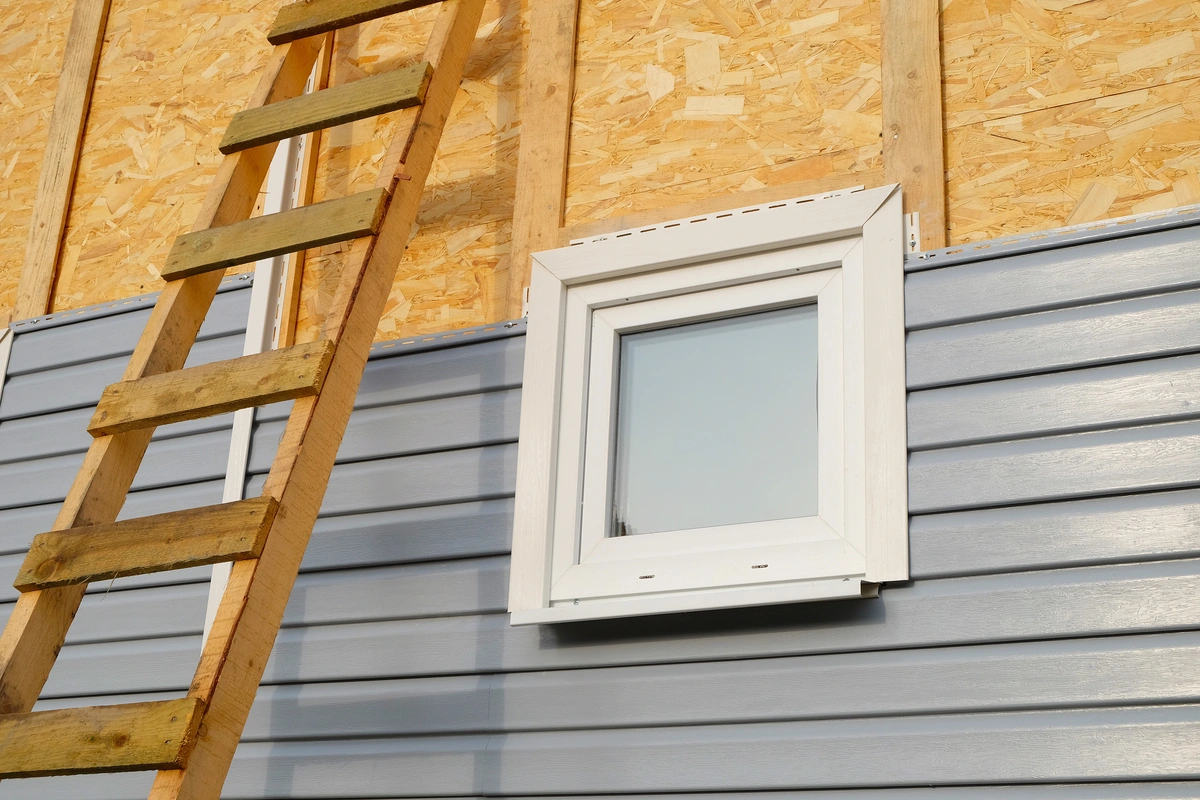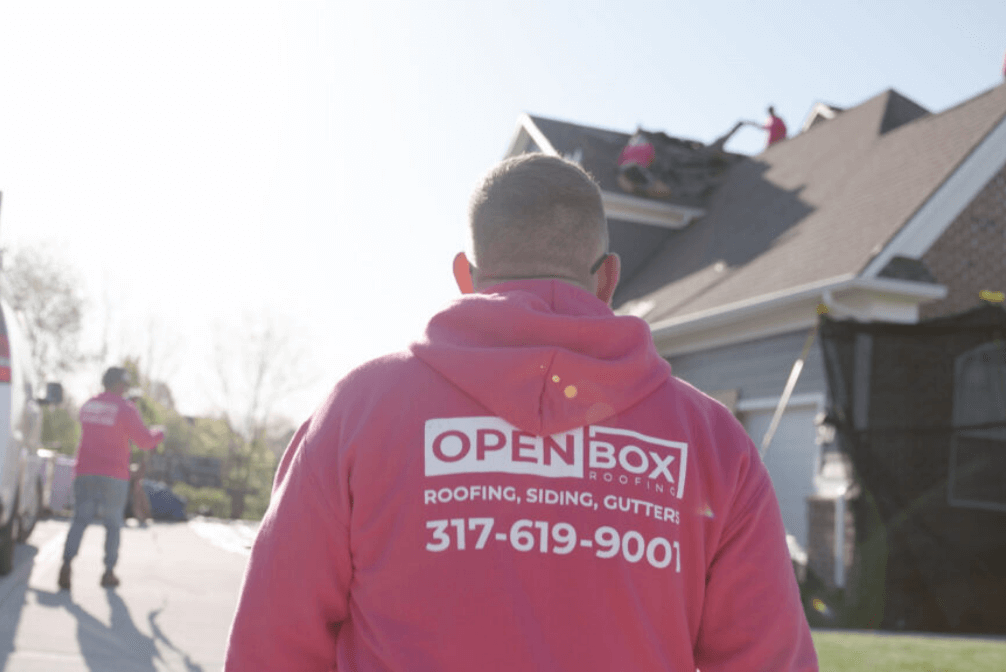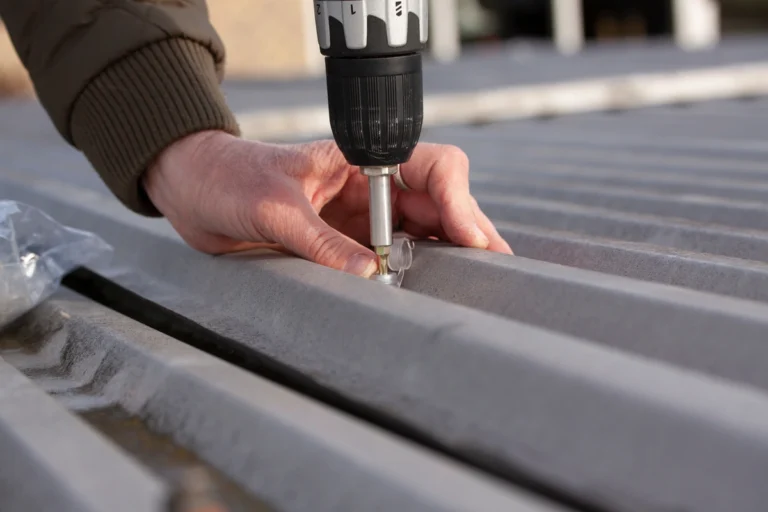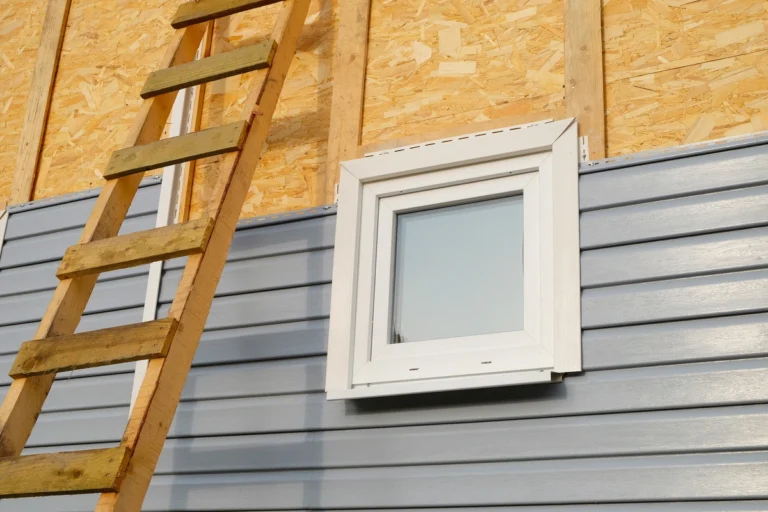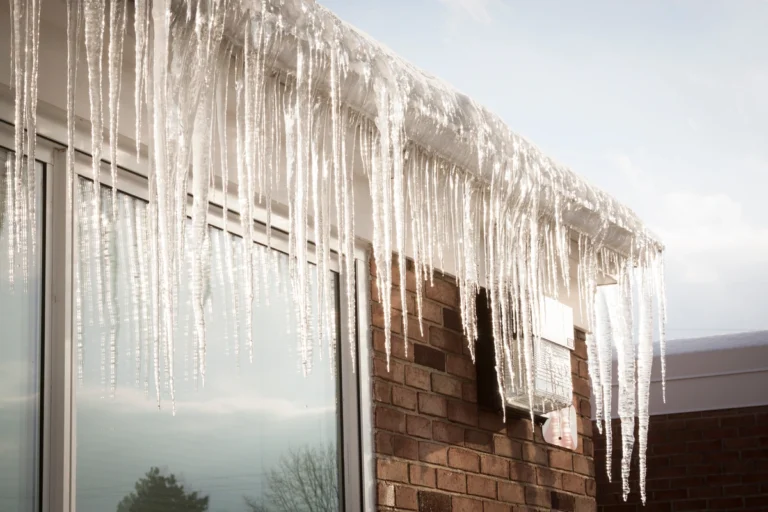Owning a home is a significant investment, and maintaining its exterior is crucial for its longevity and curb appeal. One of the most important aspects of your home’s exterior is its siding.
Over time, however, siding can deteriorate, requiring repair or replacement. But what does it cost to repair siding? In this blog, we’ll explore everything you need to know about siding repair cost, helping you make informed decisions to protect your home’s value and appearance. We’ll go over:
- Why repairing siding matters
- Different siding materials
- Cost averages
Why Siding Matters
Siding serves as your home’s first line of defense against the elements. It protects your home from:
- Rain
- Wind
- Snow
- Sun
It also provides insulation and contributes to the overall aesthetic appeal. Damaged or worn-out siding can lead to water infiltration, energy inefficiency, and decreased property value.
Common Types of Siding Materials
Before we dive into the costs, it’s important to understand the different types of siding materials available. Each type comes with its own set of advantages and price points:
Vinyl Siding
Vinyl siding is one of the most popular choices due to its affordability and low maintenance. It’s available in a wide range of colors and styles, making it versatile for various home designs. However, vinyl can crack or warp under extreme temperatures, necessitating repairs.
Wood Siding
Wood siding offers a classic, natural look that’s hard to beat. However, it requires regular maintenance to prevent rot, insect infestation, and weather damage. Repairing wood siding can be labor-intensive and costly, but the aesthetic appeal often justifies the expense.
Fiber Cement Siding
Fiber cement siding is known for its durability and resistance to fire, insects, and rot. It’s a more expensive option upfront but requires less maintenance over time. The cost of repairing fiber cement siding can be higher than vinyl but lower than wood.
Metal Siding
Metal siding, including aluminum and steel, is durable and low-maintenance. It’s resistant to fire, insects, and rot, making it a great choice for long-term durability. However, metal siding can dent or corrode, requiring occasional repairs.
Stucco Siding
Stucco siding is popular in regions with dry climates. It’s a versatile and attractive option but can crack over time due to settling or impact. Repairing stucco siding involves patching and refinishing, which can be labor-intensive.
6 Factors Affecting Siding Repair Costs
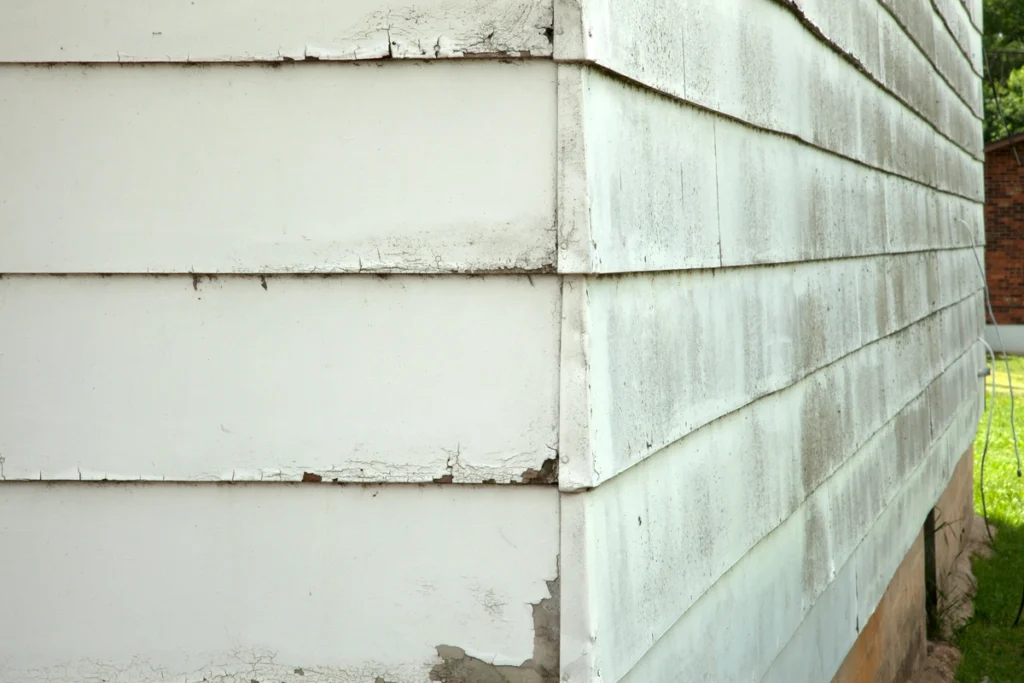
The cost of siding repair varies based on several factors. Understanding these factors will help you estimate the potential expenses for your specific situation:
1) Type of Siding Material
Different siding materials have different repair costs. For instance, repairing wood siding is generally more expensive than vinyl due to the material’s cost and the labor involved in matching and replacing wooden boards.
2) Extent of Damage
The extent of the damage plays a significant role in determining the repair cost. Minor cracks or holes may only require simple patching, while extensive damage might necessitate complete panel replacements.
3) Labor Costs
Labor costs can vary based on your location and the complexity of the repair. Urban areas with a higher cost of living typically have higher labor rates. Additionally, intricate repairs or hard-to-reach areas can increase labor costs.
4) Accessibility
The accessibility of the damaged area can impact the cost. If the damage is located in a high or difficult-to-reach spot, additional equipment and safety measures might be required, increasing the overall cost.
5) Removal and Disposal
If the damaged siding needs to be removed and disposed of, this can add to the cost. Some materials, like asbestos siding, require special handling and disposal, further raising expenses.
6) Permits and Inspections
Depending on your local regulations, you might need permits and inspections for siding repairs. These additional costs should be factored into your budget.
Average Siding Repair Costs by Material
Let’s break down the average costs for repairing different types of siding materials:
Vinyl Siding Repair Cost
Vinyl siding repair is usually the most affordable option:
- Minor Repairs: $50 – $200
- Moderate Repairs (replacing a few panels): $200 – $600
- Extensive Repairs (large sections or multiple panels): $600 – $1,500
Wood Siding Repair Cost
Wood siding repair can be more expensive due to material and labor costs:
- Minor Repairs (patching small areas): $100 – $300
- Moderate Repairs (replacing boards): $300 – $1,000
- Extensive Repairs (large sections or severe damage): $1,000 – $2,500 or more
Fiber Cement Siding Repair Cost
Fiber cement siding repair falls in the mid-range:
- Minor Repairs (patching small areas): $100 – $300
- Moderate Repairs (replacing boards): $300 – $1,200
- Extensive Repairs (large sections or severe damage): $1,200 – $2,500
Metal Siding Repair Cost
Metal siding repair costs can vary:
- Minor Repairs (denting or small patches): $100 – $400
- Moderate Repairs (replacing panels): $400 – $1,200
- Extensive Repairs (large sections or severe damage): $1,200 – $3,000
Stucco Siding Repair Cost
Stucco siding repair involves patching and refinishing:
- Minor Repairs (small cracks or holes): $200 – $500
- Moderate Repairs (larger cracks or sections): $500 – $1,500
- Extensive Repairs (widespread damage): $1,500 – $4,000 or more
DIY vs. Professional Siding Repair
When it comes to siding repair, homeowners often face the decision of whether to tackle the repair themselves or hire a professional. Both options have their pros and cons:
DIY Siding Repair
👍 Pros:
- Cost Savings: DIY repairs can save money on labor costs.
- Immediate Action: You can address minor issues promptly without waiting for a contractor.
👎 Cons:
- Skill and Experience Required: Siding repair requires specific skills and tools. Mistakes can lead to more extensive damage.
- Time-Consuming: DIY repairs can be time-consuming, especially if you’re not experienced.
Professional Siding Repair
👍 Pros:
- Expertise and Quality: Professionals have the experience and tools to perform high-quality repairs.
- Warranty and Insurance: Reputable contractors offer warranties and are insured, providing peace of mind.
👎 Cons:
- Higher Cost: Hiring a professional comes with labor costs, which can be significant.
- Scheduling: You might need to wait for an available contractor, delaying the repair.
Tips for Reducing Siding Repair Costs
While siding repair costs can add up, there are ways to minimize expenses without compromising on quality:
Regular Maintenance
Regularly inspect your siding for signs of damage and address minor issues promptly. Preventative maintenance can prevent small problems from becoming costly repairs.
Choose Durable Materials
Invest in durable siding materials, even if they come with a higher upfront cost. High-quality materials require fewer repairs and last longer, saving you money in the long run.
Get Multiple Quotes
When hiring a professional, obtain quotes from multiple contractors. This allows you to compare prices and choose the best option for your budget.
Consider Partial Repairs
If the damage is localized, consider partial repairs instead of replacing entire sections. This can save you money while still addressing the issue.
Check for Rebates and Incentives
Some regions offer rebates or incentives for energy-efficient home improvements, including siding repairs. Check with local authorities to see if you qualify.
Let Us Repair Your Damaged Siding
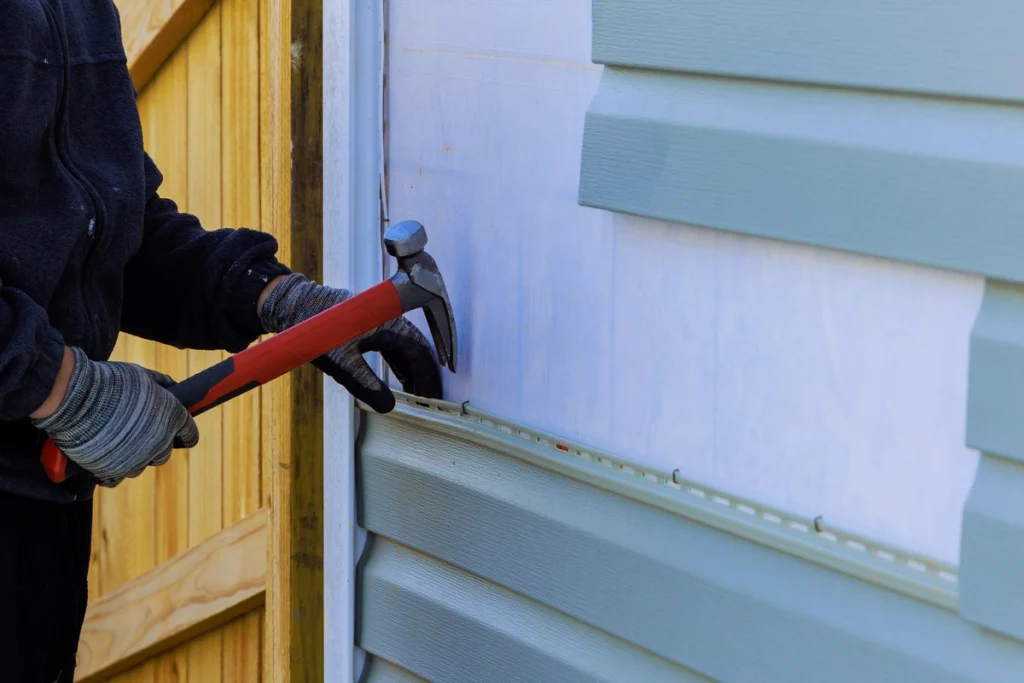
Siding repair is an essential aspect of home maintenance that should not be overlooked. Understanding the factors that influence siding repair costs and the average expenses for different materials can help you budget effectively and make informed decisions.
Ready to take the next step? Contact Open Box Roofing to assess your needs and provide a detailed estimate. We’ll protect your home and help you enjoy a beautiful, well-maintained exterior for years to come.
